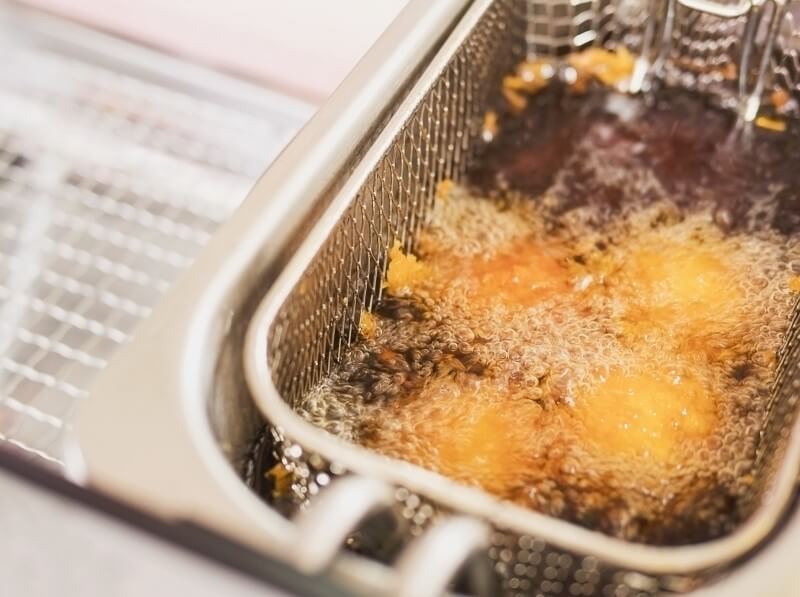Best Practices for Operating Deep Fryers in a High-Volume Kitchen

Commercial kitchens are always busy. It’s critical to maintain a proper routine and practice in the commercial kitchen to avoid any kind of hazard or mishap. While operating in the high-volume kitchen, the deep fryer is one of the hardest-working pieces of equipment. From crisping up golden French fries to frying batches of chicken, it operates under intense conditions day in and day out. With such operations and high outcomes, there is always high risk associated as well. Hot oil, heavy baskets and constant use can easily lead to burns, fires and costly downtime. In such a situation, safety is the top priority.
For operators in high-volume kitchens, fryer safety isn’t about compliance. It is about protecting staff, preventing accidents and ensuring uninterrupted services. By following best practices, you can reduce hazards, extend the life of your equipment and keep your kitchen running smoothly.
In this guide, we will explore the practical steps on how you can maximize the safety for your commercial kitchen and staff while ensuring optimal performance.
Train Staff on Safe Operation
The first step towards fryer safety is thorough training. Every employee who works with or near the fryer should need to know the following:
- Safely lower and lift the baskets without splashing oil.
- Recognize warning signs of overheating or malfunction.
- Properly filter and change oil without rushing the process.
- Shut down the fryer in an emergency.
When staff are well-trained, they are more likely to follow procedures and less likely to take shortcuts that could compromise the safety.
Monitor Oil Levels and Temperatures
Oil is the life of the fryer, and when it is used inappropriately, it becomes the biggest source of accidents. Overfilling or underfilling can cause damage with overheating or splashing. It is best practice to keep the fryer in a commercial kitchen up to optimal use and recommended levels.
Equally, it is also important to monitor the temperature. Most fryers are designed to work within a specific heat range. Pushing the range beyond the recommended oil level can trigger risk ignitions and oil degrading in quality. A reliable staff will always monitor the oil temperature with a thermometer or a built-in monitoring gauge system.
Personal Protection is key
In commercial kitchens, not even the trained staff is immune to oil burns. Protective gear in commercial kitchens is a must-have.
- Heat-resistant gloves for handling baskets and filters.
- Non-slip shoes to prevent slips on oil-spotted floors.
- Long sleeves or aprons to shield arms and torsos from splashing.
By making personal protection part of your kitchen culture, you reduce the likelihood of serious injuries.
Keep a Clean and Safe Work Zone
In a high-volume kitchen, oil can easily accumulate around fryers, creating both fire and slip hazards. Floors should be mopped regularly with degreasers, and fryer exteriors wiped down at the end of each shift.
Another essential step is keeping the area around the fryer clear. No boxes, rags or paper products should ever be near hot oil. Fire suppression should also be inspected frequently to ensure readiness in case of an emergency.
Stick to Maintenance Routine
Downtime in a busy kitchen can be expensive. Preventative maintenance is your best defence against surprises. Key steps include:
- Filtering oil daily for extended lifespan.
- Scheduling regular professional servicing for thermostats, burners and safety shutoffs.
- Replacing worn baskets, gaskets and filters before they fail.
A well-maintained fryer not only performs better but also operates more safely.
Be Prepared for Emergencies
Even with best practices, accidents can still happen. A clear emergency plan ensures your staff know the drill on what to do and how to proceed further.
- Fire extinguishers should be within reach for each staff member, and they should be trained in their use.
- Oil spill kits should be available to quickly clean up slippery floors.
- Procedures for shutting off gas or power supply must be well documented and rehearsed.
When emergencies are anticipated and prepared for, they are far less likely to spiral out of control.
Safety is More than a Protective Measure
Operating a deep fryer safely is about more than preventing injuries. It also reduces downtime, extends the life of equipment and saves money by minimizing wasted oil and repairs. In a high-volume kitchen where every second counts, safety is the difference between smooth service and costly disruptions.
By training your team, maintaining your equipment and keeping safety top of mind, you protect your staff, your investment and your customers.
